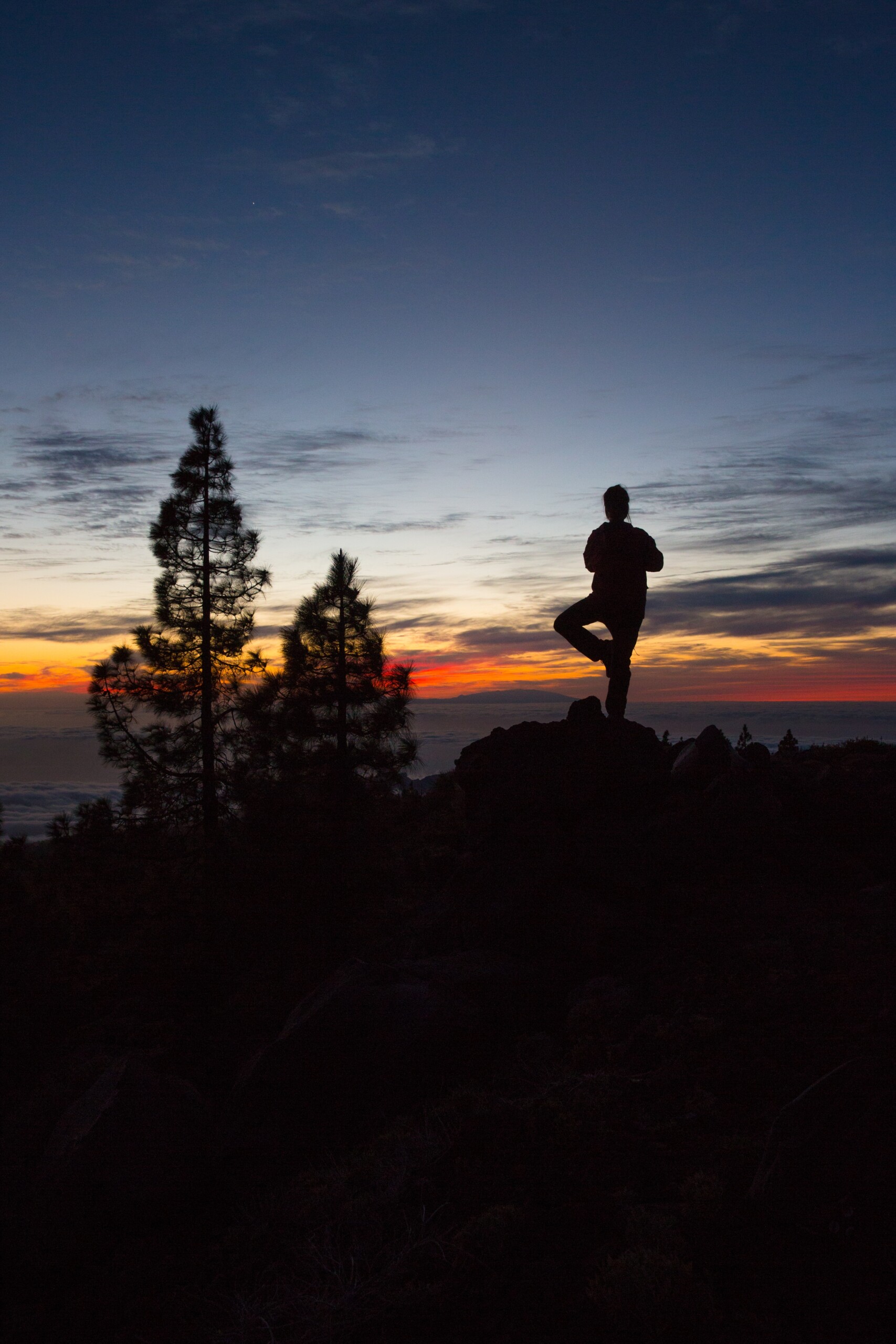We often do not know what other people are experiencing. And I do not mean just what they are thinking cognitively, or feeling emotionally, I mean, we literally do not know what they see, what they hear, how fast their body reacts to stimuli, how they experience color, sound, sensation, pain. We tend to think just because we have a body, and we know what things feel like in our own bodies, that everyone else’s sensations feel just like ours. The area of psychology called “Sensation and Perception” tells us that, though there are obvious similarities and common factors, that each of us experiences the world slightly differently. How I see red is slightly different from how you see red. And by and large, we do not start conversations with one another asking things like, “Hey, how hot is hot for you?”
Being human means we have great blessings, and great limitations. I was reminded of this recently when I underwent emergency eye surgery for a detached retina. I am, thankfully, quite well, but as a result of my operation, I had a period of weeks during recovery from surgery, when I could not see out of one eye. Meanwhile, I looked just the same, and unless I told people, no one would have known I “saw differently.” If you have never experienced any form of temporary blindness in one or both eyes, let me tell you: It does not go the way you think it will. Or maybe yours did—mine surely did not.
First of all, let’s start with the fact that because I have always had 20/20 vision… until I turned “a certain age” and began to need reading glasses. As a result, I have been pretty lucky, visually speaking, and have not had a lot of opportunities to think about how other people “see.” I certainly know there are people who need glasses, and people who have various visual limitations, including those who are legally blind in one or both eyes. However, rarely had it occurred to me before this experience, to wake up every day and say, “Thank you God that my eyes work, and that I woke this morning being able to see.”
Perspective
When I was blind in one eye after surgery, it was not, as I imagined it would be–a dark, unseeing eye. What I had, instead, was an eye that looked like someone was shining a giant used-car-dealership- opening sized spotlight directly in to my eye…. through moving ocean waves. Blecch. Being an individual who easily becomes motion sick, not only was I working with one eye, not only was I wanting to just put my head down and make the spotlight in the other one go away, but I was also half seasick at all times. Try explaining this in the supermarket checkout line. “I’m so sorry I cut in front of you by accident. I literally did not see you, and also, I am frankly a little seasick right now.” Walking in this condition, working in this condition and especially driving in this condition (with the doctor’s permission!) all made me think about how we mostly walk around day by day, thinking we know what others are seeing and feeling and perceiving…. and how completely ignorant we actually are most of the time.
I confess: I am a bit of a fast driver. I like to think of myself as polite enough not to beep at the person ahead of me when they take whatever I think of as, “too long,” to notice that the light has turned green, and I do not drive aggressively. But I am, embarrassingly, perfectly capable of driving around town thinking everyone else can react just as quickly as I can. In my little pre-surgery mind, everyone on the road could see just as much as I could, hear just as well as I could, and they were certainly able to think and assess road conditions just as quickly as I (believed) I could.
Not So!
I love how life has subtle ways of reminding us to broaden our thinking. If you were on the road with me during the month of my recovery from eye surgery, you found this speed racer creeping along at 25 miles an hour, on side streets, hugging the right lane for dear life. If you were behind me in the left turn lane, you may well have thought, as pre-surgery me would have, “Oh my gosh, I could have taken that left turn three times in the time you are taking – GO ALREADY!” But of course I could not go. Because I had no real left eye to speak of…. so seeing on my left side meant swiveling my head carefully and as far as I could, to use my right eye to look to the left, then the right, and then double check to the left again…. meanwhile double checking all of my blind spots with one eye to make sure I wasn’t missing any pedestrians in the cross walk, or cars that had pulled up behind me to try to go around.
In short, I was a driver that would have driven me crazy.
Luckily this did not go on for long, and within a couple of weeks I began to regain my vision. But in the meantime, even while being very careful, I managed to cut two people off and almost run them over, while walking in the church parking lot (Left side? What left side?), I scraped the knuckles on my left hand badly enough to cause them to bleed, because without binocular vision, I did not realize how close I was walking to the wall, and on at least one occasion, I, a lifelong city parallel parker, parked my car so far away from a curb that I could have been in an old Candid Camera video. (Thank goodness no one was there to see, and I was able to try again.) In short, I had a completely different perspective than I usually have. But I looked just the same—no patch over my eye, no visible signs of limitation. This got me to thinking about how impatient and reactive we humans can be to people who don’t “see things our way.”
There But For the Grace of God Go I
“There but for the grace of God go I.” It’s a good concept to keep in mind. And honestly, if we want to know the more impatient side of our nature, watching ourselves driving is a great time to notice it! When you are driving behind that person with their blinker on for 5 solid miles, how is your blood pressure? When you are running late to work, and trapped in the fast lane behind the person driving 35mph, what kinds of things are you thinking? If you are anything like me, it is likely not, “Oh that poor person in front of me may have just had retinal surgery and only be seeing with one eye.”
Watching myself maneuver with one eye made me acutely aware of how often we get so over-focused on what is happening inside of us, that we forget to be aware that the people around us are also coping with their own set of internal sensations and perceptions all of the time: stress, mood, state of mind, physical limitations, internal dialogue. Becoming more aware of how a person’s “inner state” is shaping their “outer actions” can go a long way in allowing us to have more patience with those around us. Lots of people go through life feeling depressed, or anxious, or worthless or terrified or alone. Some people struggle with phobias, others spend their day fighting off panic attacks. Some people with thought disorders hear voices or see objects or visions that the rest of us cannot see. Other people live with obsessive-compulsive tendencies that cause them to need to count things, or recite certain phrases to themselves or feel guilty for things they have not actually done wrong. Some people on the autism spectrum go through life with a physiological unawareness of the social cues that most of us take for granted. They may not realize if they are standing too close, not making eye contact, or saying something that might seem hurtful. And plenty of people who do not have any sort of diagnosable mental health issue are struggling with the loss of a loved one, a difficult relationship or major job stress. There are others who are caught in the cycle of addiction who are doing everything possible to hide the fact that they are depending on alcohol or drugs just to get them through the day.
Inside Out
All of these things I named above are, essentially, happening inside of people before we even look outside of ourselves and notice the people around us. What would it be like in our little corner of the world if just for today, we woke up and made just a little more room in our mind and heart for benefit of the doubt? If we presumed that for the most part, people are doing the best that they can, and if their behavior seems unexplainable (why oh why is that woman in the blue car taking so long to make that left turn?) maybe they have a circumstance that we just do not understand or know about.
Though I would not wish it on anyone, my experience of being blind in one eye for awhile was, well, eye opening. It made me more aware of how often I presume that others are seeing and hearing and experiencing the world in just the same way that I am….even though I know better. And it reminded me how easily our equilibrium can be thrown off when we experience a sudden change. Of course we do not all see, think, feel and hear in the same way. How could we? During my time not seeing, all I wanted to say to people was, “I’m so sorry—I can’t see you enough to be all the way here with you. If I cut in front of you in line, or bump into you when I am walking beside you, please have compassion. I am not doing it on purpose.” But we human beings are literally neurologically wired with a need to be seen. It is such a basic survival need, that a lack of mirroring by our caregivers in our earliest years can lead to lasting emotional consequences as adults. So we can get pretty cranky when we feel we are not “seen,” (heard, validated). But what if, just for today, instead of wishing to be seen by others, we went out into the world with the goal of seeing others a bit more clearly? Of trying to look beyond ourselves and see the people we encounter more deeply?
Try it out! The next time someone irritates you, or seems to get in your way, try suspending your initial reaction, or at least catching yourself in it, and then think of this:
- How would I be reacting to this same person if they were someone I love, who I know has a limitation?
- How would I be reacting to this “inconsiderate stranger” if I knew they had just left the doctor with a cancer diagnosis?
- How would I treat this person who has 25 items in the 10 items or less supermarket line, if I knew that they had been deeply clinically depressed and it took everything they had just to get to the store?
- Would I be as upset about that person taking my parking space if I knew that they were just doing their best to park before they had a massive panic attack?
Gregory Boyle, in his book, Barking To the Choir: The Power of Radical Kinship, writes, “It would seem that, quite possibly, the ultimate measure of health in any community might well be our ability to stand in awe of what folks have to carry, rather than in judgment of how they carry it.”
Carey Gauzens, LCSW has been with the Center for Pastoral Counseling of Virginia for 19 years and is a psychotherapist in our Alexandria Center. She counsels individual adolescents and adults for issues around grief and loss, trauma, post traumatic stress disorder, depression and transition. She is also available to speak to congregations and community groups, and for consultations with pastors and congregational leadership.
Request an Appointment
Individiual, Couples, Pre-Marital, Family,
Children's Counseling and Clergy Assessement
Was It Helpful To You?



 (4 votes, average: 4.75 out of 5)
(4 votes, average: 4.75 out of 5)




